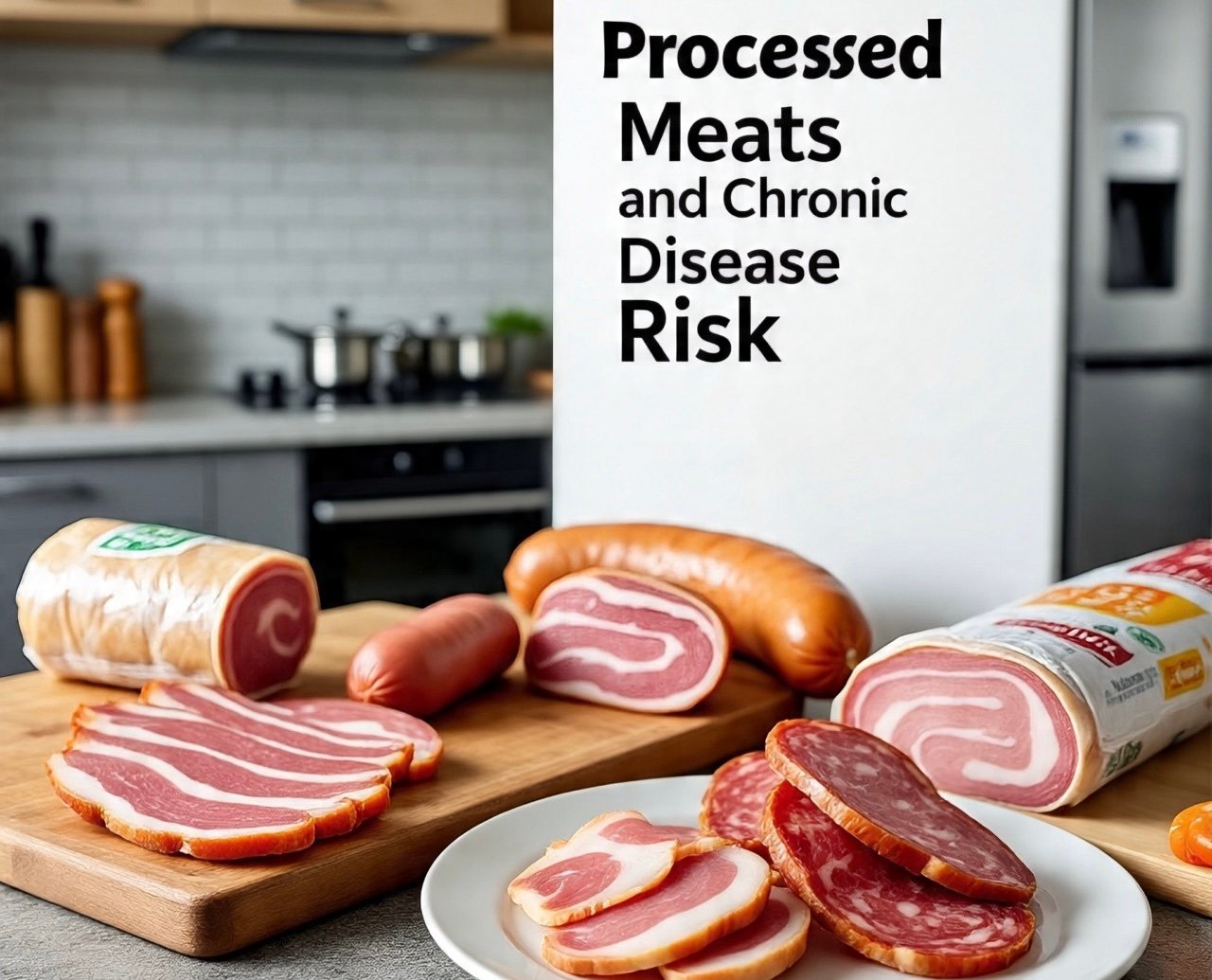New research suggests no safe amount of processed meat exists. Learn how processed meats, sugary drinks, and trans fats increase chronic disease risks. Protect your health.
What does new research say about processed meats and disease?
Recent global research published in Nature Medicine reveals a sobering truth: there is no safe amount of processed meat when it comes to chronic disease risk. The comprehensive study, analyzing data from over 60 prior studies, found strong links between processed meat consumption and a higher risk of type 2 diabetes, colorectal cancer, and ischemic heart disease. Even in small quantities, these foods pose measurable risks.
How much processed meat is considered dangerous?
The answer is startling: even one hot dog a day can be harmful. According to the study:
- Eating one serving of processed meat daily increased the risk of type 2 diabetes by 11%.
- The same serving raised the risk of colorectal cancer by 7%.
This comparison was made against people who do not eat processed meat at all.
Are sugary drinks and trans fats also risky?
Yes. The same study found clear health risks associated with sugary beverages and trans fats:
- Sugary Drinks: Just one 12-ounce (355 ml) sugar-sweetened beverage per day was linked to:
- An 8% increase in type 2 diabetes risk.
- A 2% increase in ischemic heart disease risk.
- Trans Fats: Though banned or restricted in many countries, they still appear in some processed foods. These industrial fats:
- Lower good cholesterol (HDL).
- Raise bad cholesterol (LDL).
- Promote plaque buildup in arteries, increasing the risk of heart attacks and strokes.
What makes processed meats so harmful?
The main culprits are chemical additives and preservatives, such as nitrites and nitrates, commonly found in:
- Bacon
- Sausages
- Hot dogs
- Deli meats
Inside the body, nitrites can form carcinogenic compounds. These compounds are known to damage cells and increase the risk of cancer, especially in the colon and rectum.
How do sugary drinks affect your health?
Sugar-sweetened beverages—like sodas, energy drinks, and some fruit juices—are high in added sugars with little to no nutritional value. They:
- Spike blood glucose levels.
- Increase inflammation and insulin resistance.
- Promote obesity and fat accumulation, especially around the liver and abdomen.
- Significantly raise the risk of diabetes and heart disease.
What are trans fats and where are they found?
Trans fats are artificial fats created by adding hydrogen to vegetable oil, making it solid at room temperature. Though heavily regulated, they may still be found in:
- Packaged snacks
- Frozen baked goods
- Some fried fast food items
- Margarines and shortenings
These fats disrupt normal cholesterol levels, clog arteries, and increase heart disease risk—even in very small amounts.
What do experts recommend?
Dr. Demewoz Haile, lead author of the study and researcher at the Institute for Health Metrics and Evaluation, states:
“Minimizing intake of processed meat, sugar-sweetened beverages, and trans fats is crucial to reduce chronic disease risks and improve long-term health outcomes.”
This aligns with global public health advice urging people to:
- Eat more whole, unprocessed foods
- Prioritize fruits, vegetables, legumes, whole grains, and lean proteins
- Reduce intake of ultra-processed foods
- Follow national and international dietary guidelines
FAQs: Processed Meat and Disease Risk
Q1: Is any amount of processed meat safe to eat?
A: According to new research, no amount is considered safe. Even small servings increase chronic disease risk.
Q2: What are processed meats?
A: Processed meats include products like bacon, sausages, ham, salami, and hot dogs—foods that are preserved by smoking, curing, salting, or adding preservatives.
Q3: How can I replace processed meats in my diet?
A: Use lean proteins like chicken, turkey, eggs, beans, tofu, or fish. Also try plant-based options like lentil patties or veggie wraps.
Q4: What are the alternatives to sugary drinks?
A: Opt for water, herbal teas, unsweetened coconut water, or fruit-infused water for hydration without added sugar.
Q5: How can I avoid trans fats?
A: Read nutrition labels. Look for “partially hydrogenated oils”—a red flag for trans fats—and avoid ultra-processed snack foods.
Final Thoughts: The Path to Better Health
This groundbreaking study is a powerful reminder: what we eat truly matters. Processed meats, sugary beverages, and trans fats may be convenient or tasty—but they come with long-term health costs. Prioritizing whole, unprocessed foods is no longer just a lifestyle choice—it’s a public health necessity.
Let this evidence push us toward better food choices, improved dietary awareness, and a healthier future.




